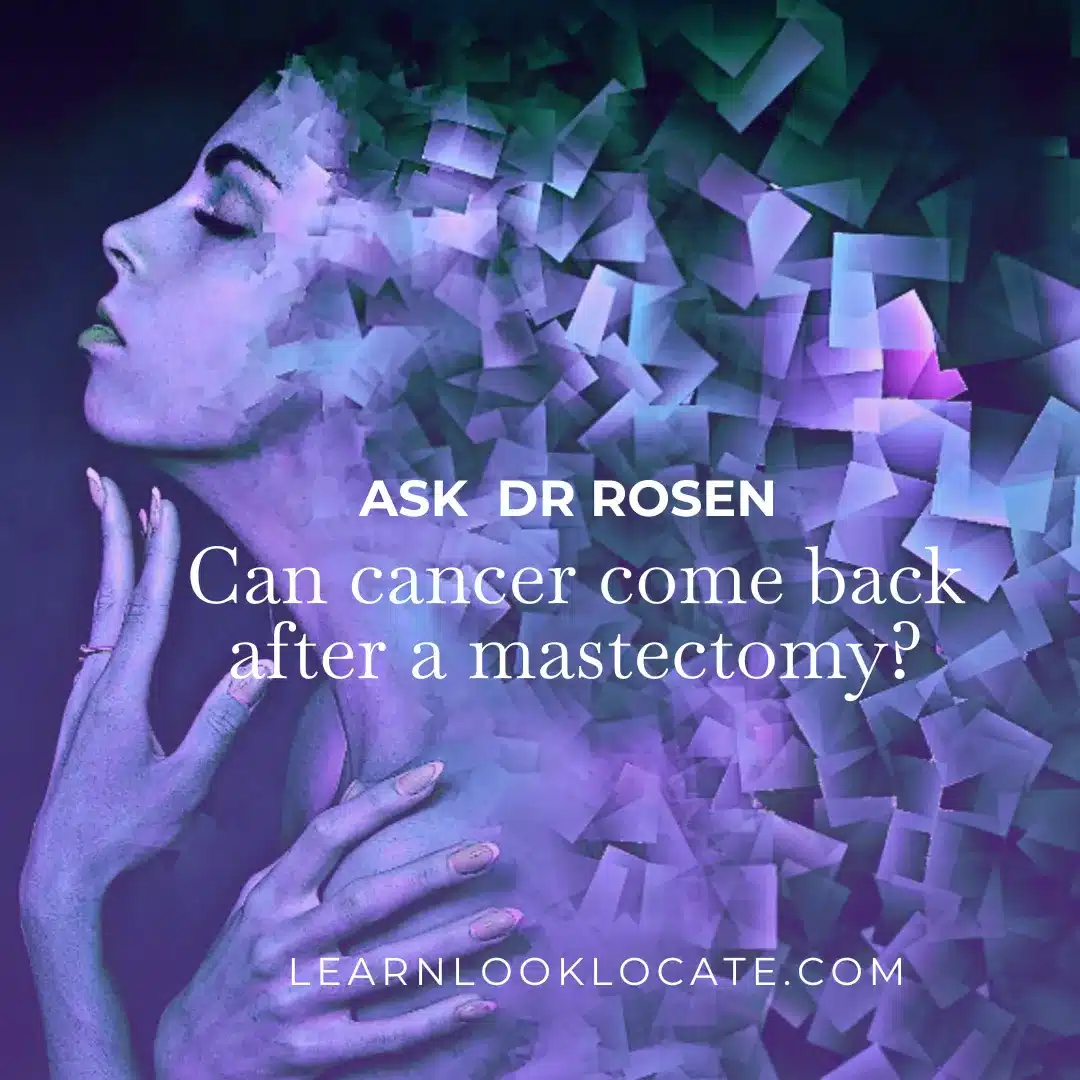
Can Breast Cancer Come Back After a Mastectomy?
By Dr. Barry Rosen, Senior Medical Advisor
Addressing a Crucial Question
One of the most pressing questions that breast cancer survivors often grapple with is whether the cancer can return after undergoing a mastectomy. Dr. Barry Rosen, Senior Medical Advisor for Learn Look Locate and FACS Breast Surgical Oncologist, sheds light on this critical issue, including breast cancer recurrence symptoms after mastectomy and breast cancer recurrence rate after mastectomy.
The Reality of Local Recurrence
Microscopic deposits of cancer cells may be left behind following breast cancer surgery. Over time, these cells may grow and become evident as a local recurrence. This phenomenon occurs more commonly after a lumpectomy than a mastectomy. It is one of the primary reasons why radiation therapy is often recommended following surgery.
Symptoms to Watch For After Mastectomy
Understanding breast cancer recurrence symptoms after mastectomy is crucial for survivors. These symptoms may include:
- New lumps near the surgical site.
- Changes in the skin or nipple, or unexplained pain.
Always consult your healthcare provider if you notice any of these symptoms.
Yearly Surveillance: A Must
Yearly surveillance is crucial in monitoring for any signs of recurrence. Dr. Rosen emphasizes that self-examination should continue even after a double mastectomy. These cancer deposits typically grow adjacent to the scar or attach themselves to the chest wall muscle.
The Role of Implants and Recurrence Rate
If an implant is present post-mastectomy, local recurrence will typically occur in front of the implant. This makes it even more critical for individuals with implants to remain vigilant in their self-examinations and regular check-ups. The breast cancer recurrence rate after double mastectomy is generally lower but still exists.
Types of Breast Cancer and Recurrence Rates
It’s essential to understand what type of breast cancer has the highest recurrence rate. Invasive ductal carcinoma, for example, has a different recurrence rate compared to other types. Knowing this can help you tailor your post-treatment surveillance.
Understanding the possibilities and risks associated with breast cancer recurrence post-mastectomy is crucial for survivors. Dr. Barry Rosen’s mission is to use the power of social media to impact as many breast cancer patients’ lives as possible, making them aware of the best options available for screening, diagnosis, treatment, and ultimately, prevention.
